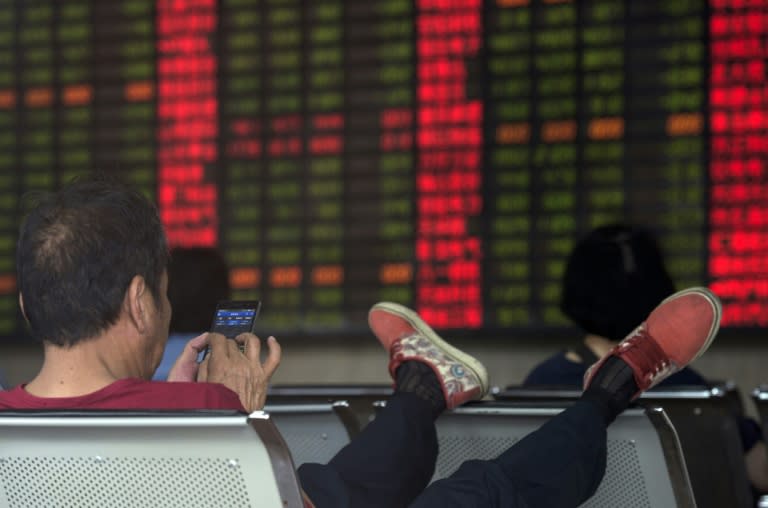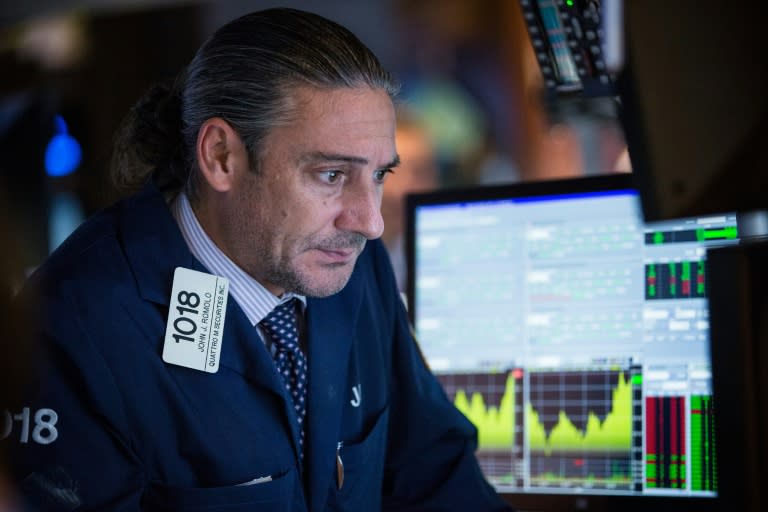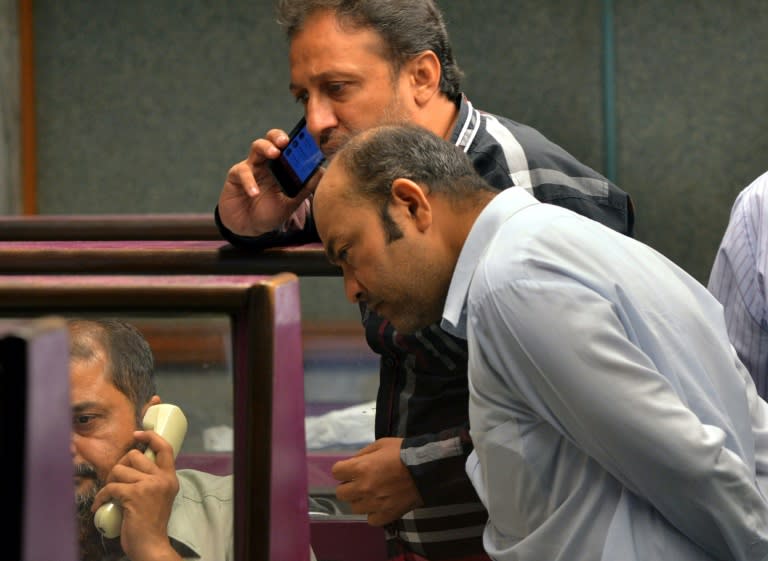G20 seeks to smooth economic shock waves from China
World finance ministers and central bankers gather in Turkey this weekend to grapple with the fallout of slowing growth in China, tanking emerging economies and panicked global stock markets. Signs that China's economy -- the world's second-largest -- is slowing more than expected have panicked stock markets, pushed commodity prices to fresh lows, sparked a rout in emerging market currencies and thrown into question a US interest rate rise previously expected in September. The potential chilling impact of a new cycle of US interest rate hikes fed uncertainty and concern ahead of the meeting of the Group of 20 top advanced and emerging economies. "China's transition to a lower growth, while broadly in line with forecasts, appears to have larger-than-previously-envisaged cross-border repercussions, reflected in weakening commodity prices and stock prices," the International Monetary Fund warned in a report on policy challenges facing the G20. "The expected boost in economic activity from lower oil prices has not materialized, and lower energy costs are keeping inflation low. Hence, monetary policy must stay accommodative to prevent real interest rates from rising prematurely," it said. The Fund cautioned policymakers at the US Federal Reserve, who meet September 16-17, to make their decision on interest rates dependant on the economic and financial data, noting "little evidence of meaningful wage and price pressures". It urged the European Central Bank, which was meeting Thursday, to extend its 60-billion-euro ($68 billion)-a-month sovereign bond buying programme if inflation fails to meet its medium-term target of just under two percent. The IMF told the Bank of Japan it "should stand ready for further easing". This week IMF managing director Christine Lagarde conceded global economic growth will likely be weaker in 2015 than the 3.3 percent estimate the IMF made just two months ago, due in part to fallout from China's slowdown. Whether China can manage a soft landing after years of explosive economic growth will be at the heart of G20 talks. - China in focus - One Western government official said China's enormous reserves and determination to ease its economy from reliance on state investment and exports to increased domestic consumer spending should be sufficient to overcome its current troubles. "The Chinese economy has the means to confront its economic slowing in the near-term," said a Western governmental source, who acknowledged the "real question is the one of switching to a more sustainable development model". Andrew Kenningham, senior economist at Capital Economics in London, says some of the reaction to China's slowing has been over-blown anyway. "For China we don't think the outlook is nearly as bad as many people are suggesting. We could even see some re-acceleration of growth in the second half of this year, partly because of policy stimulus," he said. "If you look forward China is then likely to continue slowing but at a relatively gradual pace and a pace that should not cause too many problems for the rest of the world." Not all observers are as optimistic, however, and calls have multiplied for Beijing to step up efforts to address the panic. The United States has appealed to China to be more transparent to financial markets, especially concerning the "actions and objectives" of its economic policies, a senior official with the US Treasury said. "It's important for communication to be clear and effective across a range of issues, be they related to growth, financial markets and so forth." But China isn't alone in encountering problems. The United States has produced mixed economic data, French growth has again stalled, and both Canada and Brazil have entered recession as commodity prices slide. - Reassuring, not resounding - Given that context, messages from gathering G20 officials will likely seek to be more reassuring than resounding. "I am convinced that the recent market developments -- which are not yet over -- are not the sort to destabilise the European economy," European Economic Affairs Commissioner Pierre Moscovici said Tuesday in a preview of the expected G20 tone. Sebastien Jean, director of the CEPII economic research institute said one focus of the meeting should be to clearly differentiate market panic about China from effective action that must be taken to address the situation. "There's been a lot of over-interpretation, so it will be important for G20 leaders to reaffirm their determination to coordinate" action, Jean said. Concerted action is even more important amid what Jean calls "the really sensitive moment" of the US Federal Reserve preparing to raise interest rates after years at rock-bottom levels. In 2013, the mere mention of rate increases by the Federal Reserve was enough to rock emerging markets that suffered flights of investment funds toward more lucrative US returns. That response by investors has already begun in expectation of US rate hikes -- further slowing emerging economies that had been motors of global growth in recent years.





